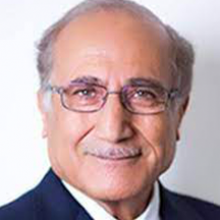You are here
Creating hope in the Cape
May 28,2018 - Last updated at May 28,2018
I participated in the 4th BMW Foundation Global Table, held on May 17-20 in Cape Town in cooperation with the Nelson Mandela Foundation and Life Co. UN ltd. of South Africa.
Although the title was “Leading Towards Equal Opportunities”, the two key terms that dominated the conversations were integrity and good governance. During the visit, we were exposed to the debate currently taking place in South Africa about the legacy of Nelson Mandela. It seems that both corruption and unequal opportunities have left many young persons both angry and idle, especially black youth.
In a way, apartheid, which had been declared null, void and illegal, managed to recreate itself. Most of the top managers of leading corporations, about 70 per cent, are still white.
The emigration of millions of refugees from neighbouring impoverished and war-torn countries to South Africa has further aggravated the unemployment problem among the country’s youth.
The discussion took to task certain issues of paramount analytical importance. Which is better to focus on, combatting corruption or adherence to integrity and pride. The positive approach of integrity seemed to reflect the consensus among the participants.
As a reflection of this spirit, we attended a celebration to honour seven civil servants who were voted as the most proud and dedicated to their duties. The public voted to those civil servants in the hope of turning them into idols and role models.
The other issue was how to create leaders who can spearhead the process of change. What are the qualifications and attributes of such leaders? Those should be forward-looking with high integrity and can create other leaders.
To help explain this idea in action, the participants spent half a day in a high school of 200 students. The principal and teachers gave room for the students to lead all activities and programmes at the school, whether curricular or extra-curricular. It is obvious that most of them would end up enjoying leadership qualities.
The last issue of importance was methodological in nature: how to affect change? Should you embrace a big-push all-embracive approach, or should you use the incremental one? While incrementality was more accepted, there was a general agreement on the need for a disruption process. Not necessarily Donald Trump style, but a style that would impose on people not only the idea of change, but the need to embrace it. Keeping the status quo does not do the trick.
The question was where does this disruption come from: from up down, or from bottom up? It was agreed that you needed both forces working in tandem in order to arrive at the desired objective.
Michael Schaefer, chairman of the BMW Foundation, and Oliver Zipse a member of the board of management of BMW, were present throughout. I met great people and leaders from Africa, Australia, USA and Europe. It was a pure vintage experience.













